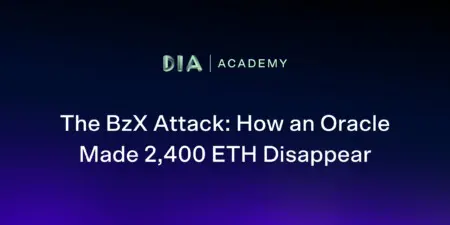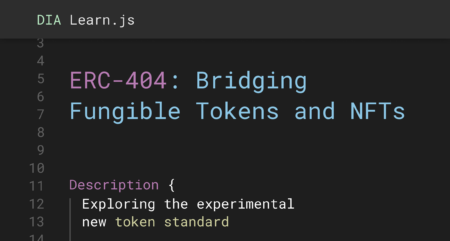The Power of Zero-Knowledge Technology in Blockchain
Zero-knowledge (ZK) technology emerges as a revolutionary innovation, poised to redefine privacy, scalability, and security paradigms. We uncover its potential and its pivotal role in the blockchain ecosystem.

The Genesis of Zero-Knowledge Proofs
Revolutionizing Privacy and Security
ZK technology offers a robust solution to the inherent tension between transparency and privacy in blockchain networks. By enabling transactions and interactions that are verifiable yet confidential, ZKPs safeguard sensitive data while maintaining the integrity and openness that blockchain technology promises.
Enhanced Security Measures
In a digital age marked by escalating cybersecurity threats, ZKPs provide an additional layer of protection. By allowing users to validate transactions or identities without exposing underlying data, ZKPs thwart potential cybercriminals, significantly mitigating the risk of data breaches and fraud.
Privacy-Preserving Transactions
The application of ZKPs extends beyond security, offering a means to conduct transactions with privacy intact. This is especially crucial in scenarios requiring the confidentiality of financial details or personal information, thereby fostering a more secure and trustworthy blockchain environment.
Scalability and Efficiency: The ZK Rollups Solution
One of the most promising advancements in ZK technology is the development of ZK rollups, a scalability solution that aggregates multiple transactions into a single proof. This not only accelerates transaction processing times but also reduces the burden on the blockchain, enabling it to scale more effectively without compromising security or decentralization.
SNARKs vs. STARKs: A Comparative Insight
The realm of ZK technology is characterized by two predominant proof types: SNARKs (Zero-Knowledge Succinct Non-Interactive Argument of Knowledge) and STARKs (Zero-Knowledge Scalable Transparent Argument of Knowledge). SNARKs are noted for their compact proof size and efficiency, making them less resource-intensive. In contrast, STARKs offer advantages in scalability and quantum resistance, thanks to their reliance on hash functions rather than elliptical curves.
Table comparing differences between zk-snark and zk-stark
| Feature | ZK-SNARK | ZK-STARK |
|---|---|---|
| Full Form | Zero-Knowledge Succinct Non-Interactive Argument of Knowledge | Zero-Knowledge Scalable Transparent Argument of Knowledge |
| Proof Size | Small | Larger than SNARKs |
| Verification Time | Fast | Relatively fast, but can vary based on proof size |
| Setup Requirement | Requires a trusted setup | No trusted setup required |
| Quantum Resistance | No | Yes |
| Computational Efficiency | High | Good, but requires more computational power than SNARKs |
| Applications | Suitable for applications requiring small proof sizes and fast verification | Suitable for applications prioritizing scalability and quantum resistance |
| Technology Basis | Elliptic curves and pairings | Hash functions |
Empowering Web3 Development
ZK technology is not merely a theoretical innovation but a practical tool that empowers developers to create next-generation decentralized applications (DApps). By integrating ZKPs, DApps can handle sensitive data across finance, healthcare, and identity management without compromising user privacy. Moreover, the ability to perform complex computations off-chain courtesy of ZKPs significantly enhances DApps’ scalability and performance, paving the way for a more inclusive and efficient digital ecosystem.
Case Studies of Zero-Knowledge Technology
Zero-knowledge (ZK) technology has been instrumental in pushing the boundaries of privacy, scalability, and security in the blockchain and Web3 domains. By exploring practical examples and case studies, we can gain insights into how ZK technology has been effectively deployed to address real-world challenges. These examples serve as educational tools for both developers and enthusiasts within the crypto space and beyond.
Zcash: Pioneering Privacy with zk-SNARKs
Zcash stands as a landmark application of zero-knowledge proofs in the realm of cryptocurrency, offering a level of privacy that distinguishes it from other digital currencies. Utilizing zk-SNARKs (Zero-Knowledge Succinct Non-Interactive Arguments of Knowledge), Zcash enables transactions where the sender, recipient, and transaction amount are all encrypted yet verifiable by the network’s consensus mechanism.
Educational Takeaway: For blockchain developers, Zcash’s implementation showcases the potential of ZK technology in creating privacy-centric cryptocurrencies. It demonstrates how zk-SNARKs can be used to validate transactions without revealing underlying data, thus preserving transactional privacy. For crypto and non-crypto users alike, Zcash exemplifies how advanced cryptographic techniques can provide the benefits of digital currencies without sacrificing personal privacy.
StarkWare and StarkNet: Scaling Ethereum with zk-STARKs
StarkWare has emerged as a key player in leveraging zero-knowledge proofs to enhance blockchain scalability, particularly for the Ethereum ecosystem. Through its development of StarkNet, a decentralized ZK rollup network, StarkWare utilizes zk-STARKs (Zero-Knowledge Scalable Transparent Arguments of Knowledge) to process and verify off-chain transactions in batches, before submitting them to the Ethereum blockchain. This approach significantly reduces the gas costs and congestion on the Ethereum network.
Educational Takeaway: StarkWare‘s StarkNet provides a compelling case study for Web3 and blockchain developers on how ZK rollups can be implemented to address scalability issues. By leveraging zk-STARKs, StarkNet demonstrates an efficient method for batch processing transactions off-chain, thus offering a scalable solution that maintains security and decentralization. For the broader audience, this example highlights how blockchain technology is evolving to accommodate higher throughput and lower costs, making decentralized applications more accessible.
zkSync: Enhancing EVM Compatibility and Scalability
zkSync, developed by Matter Labs, represents another innovative use of zero-knowledge proofs to facilitate scalability and security in blockchain networks. Utilizing zk-SNARKs, zkSync is a layer-2 scaling solution for Ethereum that enables secure and low-cost transactions. Importantly, zkSync maintains EVM (Ethereum Virtual Machine) compatibility, ensuring that smart contracts and dApps can be seamlessly migrated and benefit from enhanced scalability without rewriting code.
Educational Takeaway: For developers, zkSync serves as an exemplary model of how ZK technology can be integrated with existing blockchain architectures to improve performance without compromising on security or compatibility. It underscores the importance of EVM compatibility in layer-2 solutions, making it easier for developers to adopt scaling technologies. For non-technical audiences, zkSync illustrates the ongoing efforts to make blockchain technology more efficient and user-friendly, facilitating wider adoption of decentralized applications.
The Road Ahead: Challenges and Opportunities
FAQs on Zero-Knowledge Proofs
ZKPs are cryptographic protocols that enable one party to prove the truth of a statement to another party without revealing any information beyond the validity of the statement itself.
ZKPs enhance privacy, security, and scalability within the blockchain and Web3 ecosystems. They allow for confidential transactions, protect against cybersecurity threats, and enable more efficient processing of transactions through solutions like ZK rollups.
SNARKs offer compact proofs and efficiency but rely on elliptical curves, making them less quantum-resistant. STARKs, on the other hand, are scalable and quantum-resistant due to their use of hash functions, though they may require more computational resources.
Yes, the applications of ZK technology extend across various industries, including finance, healthcare, and supply chains, offering solutions for privacy-preserving data verification and secure, transparent transactions.








